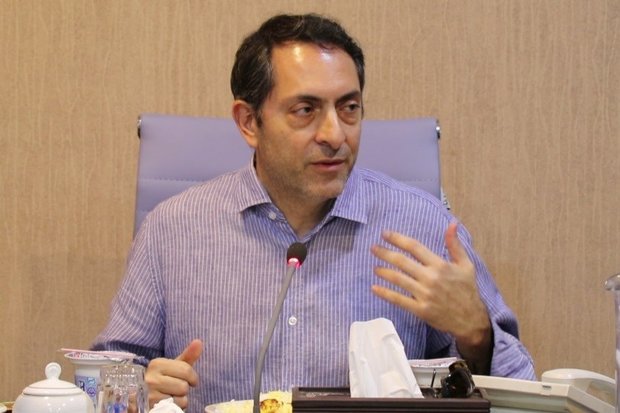Iranian President Ebrahim Raeisi lin his first visit to an Arab country left for Qatar on Monday, both to strengthen relations between the two countries and to attend the sixth Summit of the Gas Exporting Countries Forum (GECF).
The Islamic Republic of Iran has one of the best foreign relations with Qatar. In 2017, Qatar has been under unprecedented siege by its three Arab neighbors. The besiegers set 13 conditions for lifting the siege of Doha, the first of which was related to Iran. According to those conditions, Qatar must severely limit its diplomatic relations with Iran.
But the Emir of Qatar did not accept the terms of the siege and deepened his relations with Tehran.
Before leaving Tehran for Doha on Monday, President Raeisi told reporters that his visit to Qatar is a step towards activating neighborhood diplomacy, especially with the Persian Gulf states and using the capacities of these states to develop political and economic relations.
To shed more light on the issue we reached out to Dr. Luciano Zaccara, a research assistant professor at Qatar University.
Here is the full text of the interview:
How do you see the Iranian incumbent government’s approach towards the country’s neighbors?
President Raeisi is demonstrating the priority that the [P]GCC represents for his administration in terms of establishing good neighboring policy, and within them, Qatar as a privileged partner in the region. This is especially relevant after Qatar's designation as a non-regional NATO ally by the US, which seems it did not interfere at all in the good shape of the bilateral relations.
What are the political, economic and cultural fields that Iran and Qatar can cooperate with?
The areas of cooperation are many, and indeed there have been many improvements since the blockade against Qatar between 2017 and 2020. However, the economic and commercial cooperation did not reach the levels that Iran expected.
On the other hand, Iran and Qatar share similar approaches towards the Palestinian issues as was demonstrated by the discussions held in the meeting between Raeisi and Sheikh Tamim.
And last, but not least, the cooperation in the energy field, is the reason for Raeisi's visit to Qatar. The shared interests in the South Pars / North Dome gas oil represents the most important reason for both states to have coordinated positions in the multilateral fora like the Gas Exporting Countries Forum.
Generally what can be the effects of the two countries’ cooperation in the stability and security of the region? Can this positively affect the relations between Iran and other Persian Gulf Arab states?
The Qatar special relation with both Iran and the US, combined with the mediator role Qatar has been exerting in the region, and the recent reconciliation started with Saudi Arabia and the UAE actually can be the key for a further improvement of the distention in the region and a quicker and substantial rapprochement between Iran and other [P]GCC states.
Despite ups and downs in relations between Iran and some other Arab countries of the Persian Gulf, Iran and Qatar have been enjoying good relations. What is the reason?
Qatar did not perceive Iran as an essential threat, as other [P]GCC states did, mainly after the Islamic Revolution of 1979. Neither Iran considers Qatar a military threat, despite the presence of the joint US-Qatari base.on Qatari soil.
On the other hand, the needed cooperation in the gas fields demanded a proper understanding between both states to avoid any threat to the gas production, supply and prices.
Interview by Payman Yazdani

























Your Comment